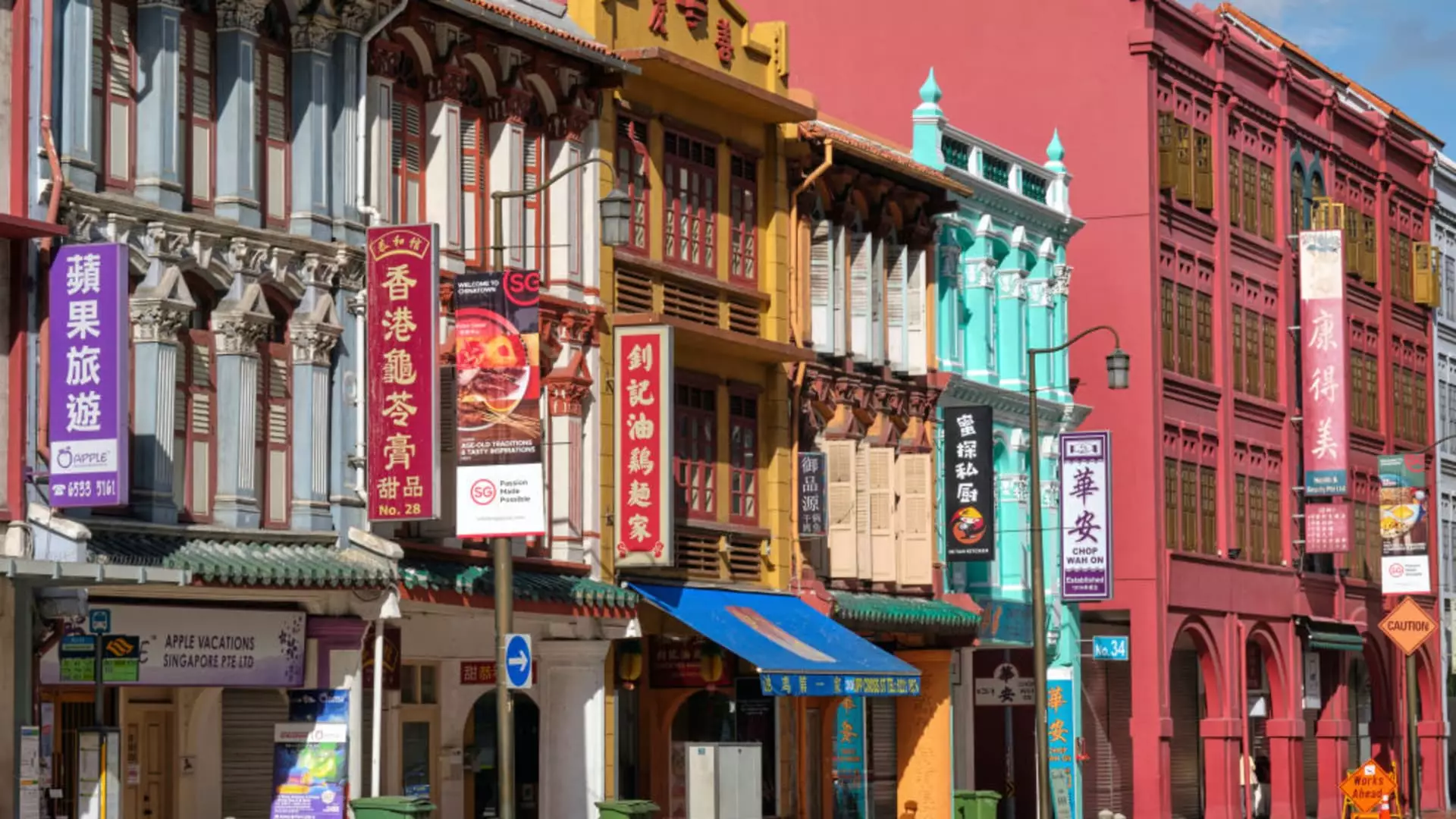Singapore, known for its modern skyscrapers and advanced infrastructure, is also home to some hidden gems in the form of ornate shophouses that dot the streets of its old neighborhoods. These colonial-era buildings, some dating back to the 1840s, are a stark contrast to the contemporary architecture that dominates the city-state. Despite their historical significance and cultural value, these shophouses come with a hefty price tag that puts them out of reach for most ordinary Singaporeans.
The allure of Singapore’s shophouses extends beyond their architectural beauty to the exclusive clientele that they attract. From celebrities like Jackie Chan to business moguls like Ray Dalio, these properties have become a status symbol among the rich and famous. The recent surge in sales volume, with transactions amounting to millions of dollars, indicates a growing interest in these unique assets. While some buyers view shophouses as investment opportunities, others see them as valuable collector’s items that are irreplaceable.
Conservation and Rarity
With only a limited number of shophouses available in Singapore, their conservation status adds to their appeal. The intricate architectural details and historical significance of these buildings make them a sought-after commodity for investors looking for alternative assets. The stringent property cooling measures imposed by the government have only heightened the demand for commercial shophouses, as they offer an exemption from additional levies and duties that apply to residential properties. This exemption has made them even more attractive to wealthy local individuals and corporate entities seeking to diversify their portfolios.
The unique appeal of Singapore’s shophouses lies in their timeless design and cultural heritage. From food and beverage establishments to boutique shops and family offices, these versatile spaces cater to a wide range of commercial activities. The preservation of these buildings is not just a matter of architectural significance but also a reflection of Singapore’s commitment to its heritage. The meticulous craftsmanship and attention to detail found in shophouses make them stand out as valuable assets that transcend mere monetary worth.
Wealth Preservation and Safe Investments
As the real estate market becomes increasingly competitive, ultra-high-net-worth individuals are turning to conservation assets like shophouses as a means of wealth preservation. With a net worth of at least $30 million, these affluent investors view shophouses as a safe haven for their capital. The allure of owning a piece of history, combined with the potential for long-term appreciation, makes shophouses an attractive proposition for those seeking to diversify their investment portfolios. In a rapidly changing economic landscape, these unique properties offer stability and enduring value that is hard to match with more conventional asset classes.
Singapore’s shophouses represent a blend of history, luxury, and exclusivity that appeals to a select group of discerning investors. Their cultural significance and architectural uniqueness make them a prized possession for those who can afford them. As the demand for conservation assets continues to rise, the allure of these heritage properties is likely to endure, cementing their reputation as a sound investment in a rapidly evolving market.

